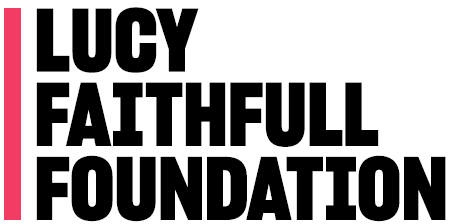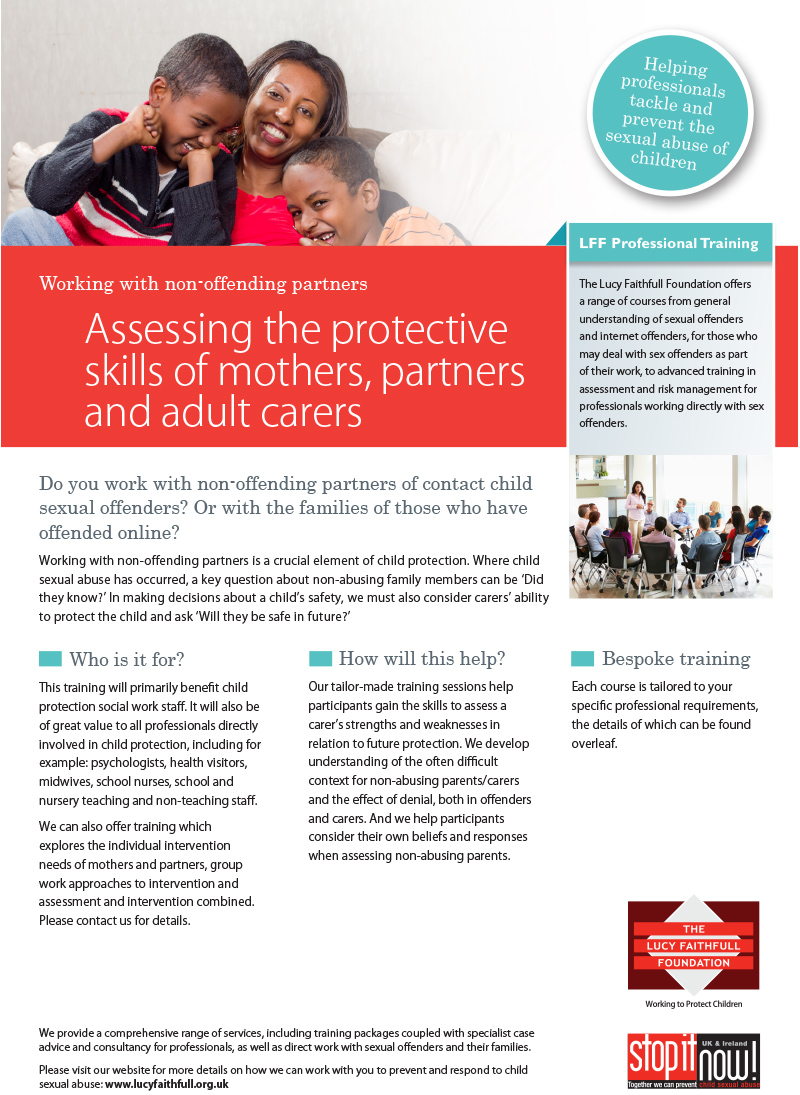Assessing the protective skills of mothers, partners and adult carers
Working with non-offending partners
Who is it for?
This training will primarily benefit child protection social work staff. It will also be of great value to all professionals directly involved in child protection, including for example: psychologists, health visitors, midwives, school nurses, school and nursery teaching and non-teaching staff.
We also offer training which explores the individual intervention needs of mothers and partners, group work approaches to intervention and assessment and intervention combined.
How will this help?
Our tailor-made training sessions help participants gain the skills to assess a carer's strengths and weaknesses in relation to future protection. We develop understanding of the often difficult context for non-abusing parents/carers and the effect of denial, both in people who have sexually abused a child and carers. And we help participants consider their own beliefs and responses when assessing non-abusing parents.
Skilled facilitators use engaging and interactive materials, including case examples, and discuss:
- different patterns and styles of male sexual offending against children
- how this knowledge helps to understand a carer's responses during abuse and after disclosure
- the implications for assessing carers' future likelihood of keeping children safe from sexual abuse
Participants will have a greater understanding of:
- What they bring to an assessment - their own knowledge and preconceptions;
- A mother's or partner's response to suspected or disclosed abuse;
- The impact of the person who has sexually abused a child on the mother/child relationship;
- The attitudes to their non-abusing carer[s] of children who have been sexually abused;
- How current sexual abuse models can be helpful when assessing the mother's/partner's ability TO protect
- The potential impact of each aspect of the steps to offending from the person who's sexually abused a child on the mother or partner
- A framework for assessing a carer's protective skills, knowledge, strengths and resilience;
- What type of intervention a partner/carer may need.
Past attendees told us:
Contact us
For more information and to discuss your training requirements, contact the Training Coordinator:
Sign up for news & updates
Fill in our newsletter form hereTo support our work to protect children, donate today.
Donate today






